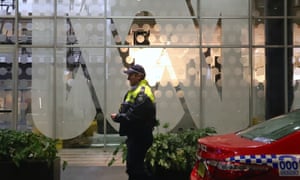Nobody is suggesting giving journalists blanket protection to publish
classified information at will, but we need profound legislative reform
For
any law to be effective, there needs to be clarity. Most legislation is
so mind-numbingly formal and technical because it is drafted to avoid
any confusion about exactly what the law allows, what it forbids, who it
applies to and the consequences of breaching it.
Yet, when it comes to the role of the media in Australia, legislated confusion abounds.
A free press is universally recognised as essential to the way any democracy should work – that’s why it is hard-wired into most democratic constitutions. The First Amendment to the US constitution protects press freedom there. The Human Rights Act does it in the United Kingdom. Canada, New Zealand, France, Sweden, even Egypt all have press freedom written into their legal codes in some form. But not Australia.
Instead, the best Australia can do is an “implied freedom of
political communication” that the high court has merely inferred from
our constitution. There is nothing that explicitly protects it. As the
case of Dan Oakes demonstrates, this makes press freedom in Australia a
dangerously fragile thing.Yet, when it comes to the role of the media in Australia, legislated confusion abounds.
A free press is universally recognised as essential to the way any democracy should work – that’s why it is hard-wired into most democratic constitutions. The First Amendment to the US constitution protects press freedom there. The Human Rights Act does it in the United Kingdom. Canada, New Zealand, France, Sweden, even Egypt all have press freedom written into their legal codes in some form. But not Australia.
Oakes is one of two ABC journalists who in 2017 exposed serious allegations of war crimes by Australian special forces in Afghanistan with their shocking “Afghan files” story. The story relied on hundreds of pages of leaked classified documents that gave an unprecedented insight into special forces operations. Oakes and his colleague Sam Clark were careful not to publish any information that might compromise the security of ongoing operations.
It is hard to imagine a story more “in the public interest” than one that details how our own troops – those who act on behalf of every Australian – may have been involved in war crimes.
Yet the journalists were the target of that now infamous raid by AFP agents who went to the ABC’s Ultimo headquarters looking for evidence of the sources for their story. And that was the day after they had gone to the home of News Corp journalist Annika Smethurst looking for her sources to another story involving classified information.
The AFP dropped the case against Smethurst citing a lack of evidence, but it has now sent their brief on Oakes to the commonwealth director of public prosecutions. (Clark is not to be prosecuted for reasons that remain unclear.) It is now up to the CDPP to decide whether to proceed with the case and take Oakes to court.
And therein lies the problem. Throughout the entire process, the decision to prosecute a journalist rests at the discretion of a series of people who may or may not be involved in the story. There is no legal obligation to consider the impact on press freedom, or the messages it might send to whistleblowers considering going to the press with stories about government wrongdoing.
The military must decide to refer the case to the police. The AFP has to decide whether to investigate and then refer the brief of evidence to the CDPP. The CDPP must then decide whether there is a “public interest” in proceeding with a prosecution. And finally, in 2019 the attorney general, Christian Porter, issued a directive saying he must personally consent to any prosecution of journalists. He also said he would be “seriously disinclined” to do so, but that ultimately makes the decision to prosecute a matter of political expedience for any of those people, rather than one of law. That is not how the law is supposed to work.
The only solution is with profound legislative reform. Tweaking individual statutes won’t cut it. Rather, the organisation I represent, the Alliance for Journalists Freedom, is calling for a comprehensive Media Freedom Act, to firmly establish the principle of press freedom in the DNA of our legal code.
Nobody is suggesting giving journalists blanket protection to publish classified information at will, but it would force investigators, prosecutors and the courts to favour the public interest in publishing, before they go after journalists.
It would also give the likes of Dan Oakes the cover they need to hold the most powerful people to account, without fear of being thrown in prison.
• Peter Greste is a spokesman and founding director of the Alliance for Journalists Freedom, and Unesco chair in Journalism and Communication at the University of Queensland

No comments:
Post a Comment